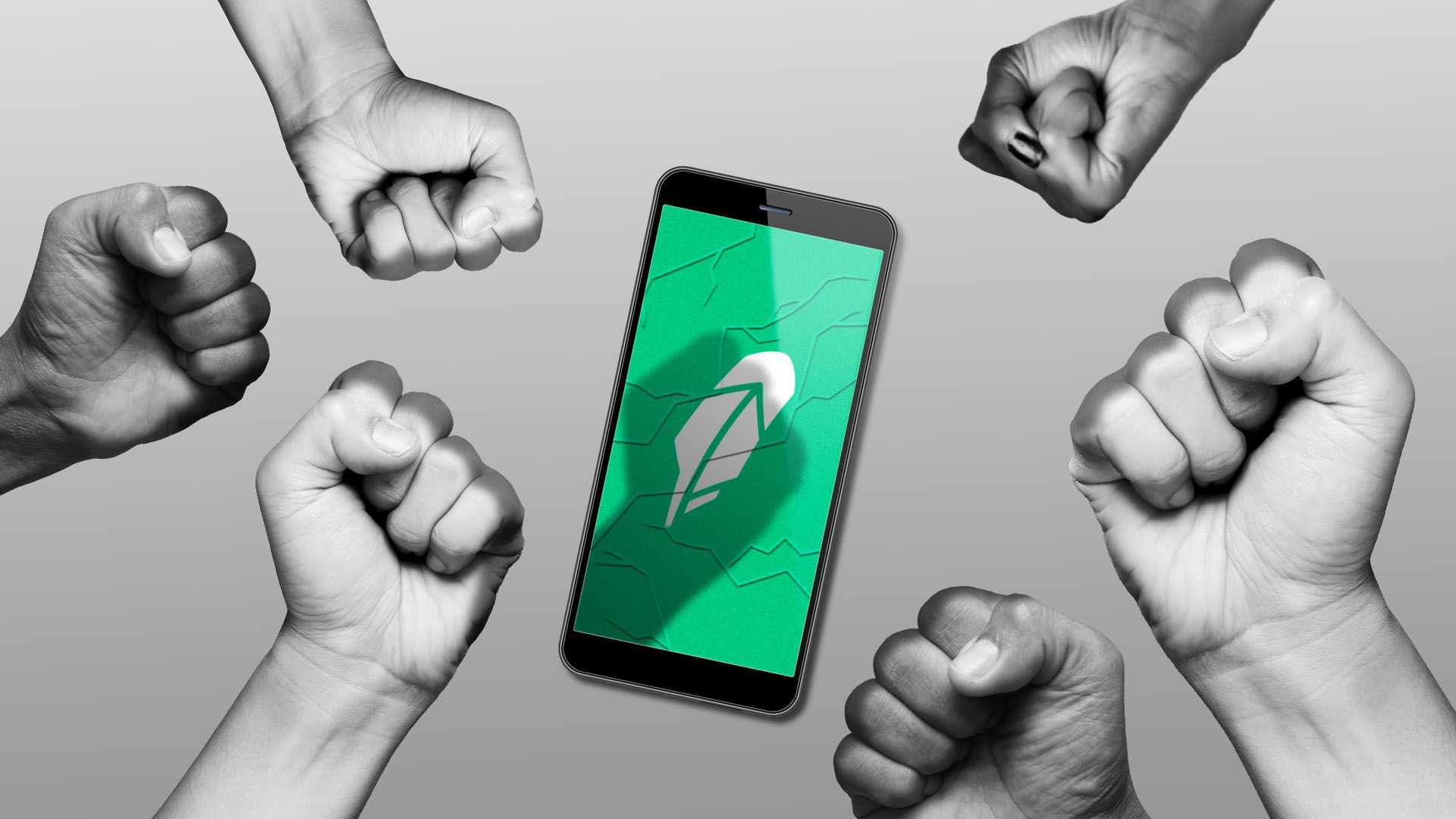Robinhood accused of securities law violations

- Felix Salmon, author ofAxios Markets

Illustration: Sarah Grillo/Axios
Robinhood is an unreliable trading platform that takes advantage of the poor, uses sophisticated gamification techniques to get them to spend money, and lies to them about their trades being free, according to a pair of lawsuits filed yesterday and today by the Securities and Exchange Commission and the state of Massachusetts.
Why it matters: Robinhood is the fastest-growing brokerage the world has ever seen, growing to an $11 billion valuation on the back of its ostensibly free trades and the gamification tools it uses to encourage its customers to do more of them.
Driving the news: Robinhood has agreed to pay $65 million to settle SEC charges that it lied about its trades being free. Its duty of "best execution" to its customers forced to offer better prices than the official "NBBO" price if those were available, the SEC says. Instead, Robinhood would settle all trades at NBBO (which stands for national best bid-offer) and pocket the difference.
The state of Massachusetts has sued the discount brokerage; that suit has not been settled, and Robinhood says it will fight it "vigorously".
- Robinhood is held to a fiduciary standard in Massachusetts: It has a legal duty of care with respect to its customers, which involves checking that their investments are suitable.
- Instead, per the suit, Robinhood seeks to maximize the number of times that its customers trade. One Massachusetts resident has averaged 92 trades per day on the platform.
Daily push notifications showing the change in value of customers's stocks encourage excess trading.
- Other push notifications include one saying "Choosing stocks is hard. 💪 Get started by checking which stock prices are changing the most."
What they're saying: "We are fully transparent in our communications with customers about our current revenue streams, have significantly improved our best execution processes, and have established relationships with additional market makers to improve execution quality," a Robinhood spokesperson said in a statement.
By the numbers: Robinhood approved 71,744 Massachusetts residents for options trading. Of those, 14,439 had no investment experience at all.
Our thought bubble: Investing should be boring. If you think it's fun, and free, and if confetti rains down your screen every time you complete a trade, that's a sign you're being manipulated.
Read the SEC complaint here.